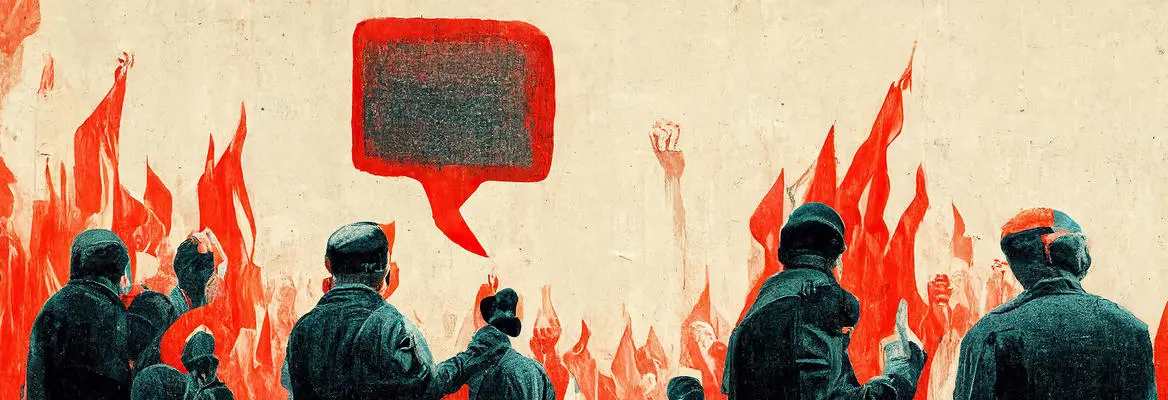Amidst a backdrop of global conflict, the culture wars continue to compel us. But whilst social and cultural issues are often hotly contested, our obsession with the culture wars may spell the end of progressive politics, writes Frank Furedi.
Even today, when the cost-of-living crisis haunts society, it appears that it is cultural conflicts that captures our imagination. Debates on gender ideology and trigger excites the media. Prominent figures from the past – from David Hume to Edmund Burke – are denounced for their complicity with slavery.
It is as if disputes about competing values, lifestyles and perceptions of cultural threat have come to dominate public life. The political vocabulary that has served western societies in the 19th and most of the 20th century has become exhausted and has been displaced by the idiom of culture. Even disputes that were once conveyed through the rhetoric of class, social injustice or ideology tend to come alive only when communicated through the grammar of culture. Attacks on the Bullingdon Club’s ‘old boy culture’ or the ‘culture of cronyism’ of Etonians are met with denunciation of the ‘culture of entitlement ‘or that of ‘dependency culture’. Hostility to the police is expressed through the denunciation of its ‘canteen culture’.
___
When culture becomes politicised it tends to drag the personal dimensions of everyday life into the public domain to the point where what you wear, who you sleep with, what you eat and consume, how you bring up and feed your child or what you read are often presented and interpreted as political statements
___
It is evident that it is through the contestation of norms and values and of cultural authority that conflicts of interests and disputes are expressed. But culture is not simply a medium for expressing disputes that have emerged in other domains of social experience. When culture becomes politicised it tends to drag the personal dimensions of everyday life into the public domain to the point where what you wear, who you sleep with, what you eat and consume, how you bring up and feed your child or what you read are often presented and interpreted as political statements. What in another context, Freud described as the ‘narcissism of minor difference’ has acquired a ubiquitous presence in western society.
The Origins of the Culture Wars
Disputes informed by contrasting cultural values have a long history. However, as I note elsewhere it was during the 1950s that the unravelling of the prevailing political consensus in Western societies begun to open up the realm of values, lifestyle and personal life to conflicts that were hitherto conducted through the language of politics [1]. These disputes, which were motivated by competing claims to moral authority initially assumed the polarised form of a clash between traditional and moral values. In the 1960s these conflicts were further politicised and gained definition through the growth of the Counter-Culture and the backlash that it precipitated by their traditionalist and conservative opponents.






















Join the conversation